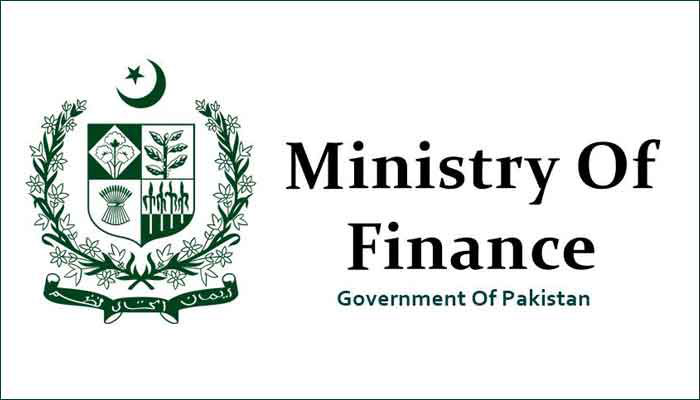Commitments to IMF: Debt Management Office being strengthened
ISLAMABAD: In the wake of the rising burden of public debt that had ballooned to almost 93 percent of GDP, the PTI government has committed to the IMF for tabling amendments into Fiscal Responsibility and Debt Limitation Act (FRDLA) 2005 before the Parliament by June 2021.
The amendments into FRDLA is aimed at strengthening the Debt Management Office (DMO) working under the Ministry of Finance. According to the IMF staff report compiled after approval of second to fifth reviews under $6 billion Extended Fund Facility, (EFF) the government agreed to establish a debt management office to strengthen its debt management strategy.
In line with World Bank and IMF recommendations, Pakistan told the IMF that they have established the proper rules of business, describing the activities and organization of the DMO, as they are amending the Fiscal Responsibility and Debt Limitation Act (2005). The draft bill for requisite amendments are expected to be submitted to the National Assembly and the Senate for their approval by the end-June 2021.
In the interim, the Finance Division has assigned additional functions to the existing Debt Policy and Coordination Office and approved an organogram to hire additional staff commensurate with the responsibilities. We expect the setup of the front office/middle office/back office of the new DMO will be completed by end June 2021 and we are committed to completing the recruitment of staff by end-September 2021 with some staff already being recruited by end-June 2021.
The migration of relevant functions to DMO will be completed by end-December 2021. Moreover, we are enhancing cooperation with other government units, the Economic Affairs Division in particular, to ensure accurate compilation and reporting of debt-related statistics, starting with the establishment of a new Working Group in February 2021.
We have taken decisive measures to revamp the debt management framework and maintain debt sustainability. Despite the unprecedented Covid-19 shock, our debt stood at 92.8 percent of GDP at end-FY 2020 (up by less than 3 percentage points compared to end-FY 2019. This is the result of our proactive efforts to address debt vulnerabilities, specially by working on reducing our short-term financing needs.
To effectively implement this strategy, a number of steps have been taken: (i) reintroduction of 15-, 20-, and 30-year fixed rate Pakistan Investment Bonds (PIBs); (ii) reintroduction of Shariah Compliant Sukuks of longer tenures(5-years); introduction of new long-term instruments (including 3- and 5-year floating rate PIBs); and (iv) imposition of a ban on institutional investments in National Savings Schemes with effect from July 1, to enhance institutional participation in competitive primary and secondary markets of long-term debt.
This strategy led to favorable results: between April and December 2020 over PRs 100 billion were raised through 15–20 year instruments and PRs 562 billion were raised from Sukuks.
To further help support the implementation of the MTDS, we have committed to a new IT on the cumulative gross issuance of PIBs, Sukuks, and Eurobonds starting in March 2021 (new Indicative Target).
-
 Hailee Steinfeld Spills Her 'no-phone' Rule With Husband Josh Allen
Hailee Steinfeld Spills Her 'no-phone' Rule With Husband Josh Allen -
 Bowen Yang Gets Honest About Post SNL Life: 'It’s An Adjustment'
Bowen Yang Gets Honest About Post SNL Life: 'It’s An Adjustment' -
 Charlize Theron Delivers Strong Message At 2026 Winter Olympics Opening Ceremony
Charlize Theron Delivers Strong Message At 2026 Winter Olympics Opening Ceremony -
 Lil Jon Reacts To Son Nathan Smith's Death: 'Devastated'
Lil Jon Reacts To Son Nathan Smith's Death: 'Devastated' -
 Bianca Censori Reveals Where She And Kanye West Stand On Having Children Together
Bianca Censori Reveals Where She And Kanye West Stand On Having Children Together -
 Taylor Swift Hypes Olympic Athletes In Surprise Video Message
Taylor Swift Hypes Olympic Athletes In Surprise Video Message -
 Timothy Busfield Charged With Four Counts Of Child Sexual Abuse
Timothy Busfield Charged With Four Counts Of Child Sexual Abuse -
 Amy Schumer Explains Why Her Sudden Photo Surge Is ‘not A Cry For Help’
Amy Schumer Explains Why Her Sudden Photo Surge Is ‘not A Cry For Help’ -
 Kanye West First Contacted Bianca Censori While In Marriage To Kim Kardashian?
Kanye West First Contacted Bianca Censori While In Marriage To Kim Kardashian? -
 Travis Kelce Reveals What His Nieces Really Do When He, Taylor Swift Visit
Travis Kelce Reveals What His Nieces Really Do When He, Taylor Swift Visit -
 Lola Young Makes Career Announcement After Stepping Back From Touring
Lola Young Makes Career Announcement After Stepping Back From Touring -
 Priyanka Chopra Shares Heartfelt Message For Nick Jonas
Priyanka Chopra Shares Heartfelt Message For Nick Jonas -
 Spotify, Major Labels File $13b Lawsuit Over Alleged Music Scraping
Spotify, Major Labels File $13b Lawsuit Over Alleged Music Scraping -
 Travis Kelce Opens Up About Being Backup Plan For His Nieces
Travis Kelce Opens Up About Being Backup Plan For His Nieces -
 Winter Olympics 2026: Chinese Robot Dance Goes Viral In Milan
Winter Olympics 2026: Chinese Robot Dance Goes Viral In Milan -
 Jessica Biel Urged To Divorce Justin Timberlake?
Jessica Biel Urged To Divorce Justin Timberlake?




